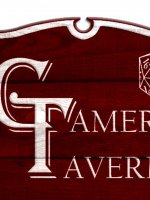D&D Beyond released the 2023 Unrolled with data on the most popular character choices for D&D. The full article includes a wide variety of statistics for the beta test of Maps, charity donations, mobile app usage, and more. However, I’m just going to recap the big numbers.

The most common species chosen by players are Human, Elf, Dragonborn, Tiefling, and Half-Elf. This contrasts with the stats from Baldur’s Gate 3 released back in August 2023 where Half-Elves were the most popular with the rest of the top five also shuffling around.
Also, keep an eye on the scale of these charts as they’re not exactly even. It starts with just over 700,000 for Humans and 500,000 for Elf, but the next line down is 200,000 with the other three species taking up space in that range. This means the difference separating the highest line on the graph and the second highest is 200,000, then 300,000 between the next two, 100,000 between the next, and finally 10,000 separating all the others.

Top classes start off with the Fighter then move onto the Rogue, Barbarian, Wizard, and Paladin. The scale on this chart is just as uneven as the last, but the numbers are much closer with what appears to be about 350,000 Fighters at the top to just over 100,000 Monks in next-to-last with under 80,000 Artificers. This contrasts far more from the Baldur’s Gate 3 first weekend data as the top five classes for the game were Paladin, Sorcerer, Warlock, Rogue, and Bard.

And the most important choices for new characters, the names. Bob is still the top choice for names with Link, Saraphina, and Lyra seeing the most growth and Bruno, Eddie, and Rando seeing the biggest declines from last year.
Putting that together, it means the most commonly created character on D&D Beyond is Bob the Human Fighter. A joke going as far back as I can remember in RPGs is, in fact, reality proven by hard statistics.
The most common species chosen by players are Human, Elf, Dragonborn, Tiefling, and Half-Elf. This contrasts with the stats from Baldur’s Gate 3 released back in August 2023 where Half-Elves were the most popular with the rest of the top five also shuffling around.
Also, keep an eye on the scale of these charts as they’re not exactly even. It starts with just over 700,000 for Humans and 500,000 for Elf, but the next line down is 200,000 with the other three species taking up space in that range. This means the difference separating the highest line on the graph and the second highest is 200,000, then 300,000 between the next two, 100,000 between the next, and finally 10,000 separating all the others.
Top classes start off with the Fighter then move onto the Rogue, Barbarian, Wizard, and Paladin. The scale on this chart is just as uneven as the last, but the numbers are much closer with what appears to be about 350,000 Fighters at the top to just over 100,000 Monks in next-to-last with under 80,000 Artificers. This contrasts far more from the Baldur’s Gate 3 first weekend data as the top five classes for the game were Paladin, Sorcerer, Warlock, Rogue, and Bard.
And the most important choices for new characters, the names. Bob is still the top choice for names with Link, Saraphina, and Lyra seeing the most growth and Bruno, Eddie, and Rando seeing the biggest declines from last year.
Putting that together, it means the most commonly created character on D&D Beyond is Bob the Human Fighter. A joke going as far back as I can remember in RPGs is, in fact, reality proven by hard statistics.




